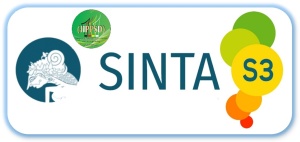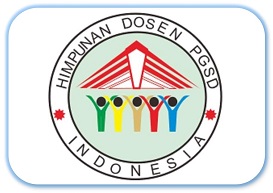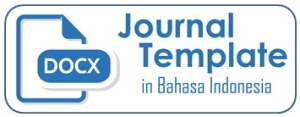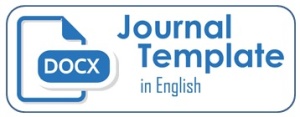Implementasi Pembelajaran Artificial Intelligence Bagi Siswa Sekolah Dasar di Kota Batu, Malang, Jawa Timur
 ),
), (1) Institut Teknologi Sepuluh Nopember, Kota Surabaya
 Corresponding Author
Corresponding Author
DOI : https://doi.org/10.24036/jippsd.v6i1.115857
Full Text:
 Language : in
Language : in
Abstract
In today's learning, the development of artificial intelligence designs is a necessity to support the education system. The involvement of artificial intelligence will help students more easily understand lessons in class and facilitate interaction between students and teachers. Through the development of design concepts and learning training, it is expected to be able to encourage the participation of students and teachers to be able to support the learning system in order to obtain better educational outputs through the use of appropriate technology. There are three learning platforms that are used as learning media, including Duolingo, Khan Academy, and Kejarcita. During the implementation of the activity, it was found that students tend to learn faster and enjoy exploring new things. It is hoped that the artificial intelligence learning design through these three applications can help the learning process during the Covid-19 pandemic which requires school from home to continue and run smoothly.
Keywords
References
Astuti, Waluya, S. B., & Asikin, M. (2019). Strategi Pembelajan Dalam Menghadapi Tantangan Era Revolusi 4.0. Seminar Nasional Pascasarjana 2019, 2(1), 469–473. https://proceeding.unnes.ac.id/index.php/snpasca/article/view/327
Bollmer, G. (2018). Theorizing Digital Cultures. In Sage. Sage Publications.
Desyandri. (2019). Bunga Rampai Ke-SD-an. In Bunga Rampai Ke-SD-an (pp. 1–14). SAIO.
Desyandri, D., Yeni, I., Mansurdin, M., & Dilfa, A. H. (2021). Digital Student Songbook as Supporting Thematic Teaching Material in Elementary School. Jurnal Ilmiah Sekolah Dasar, 5(2), 342–350. https://doi.org/10.23887/jisd.v5i2.36952
Dörnyei, Z., & Ushioda, E. (2013). Teaching and researching motivation, second edition. In Teaching and Researching Motivation, Second Edition. https://doi.org/10.4324/9781315833750
Halim, C., & Prasetyo, H. (2018). Penerapan Artificial Intelligence Dalam Computer Aided Instructure(Cai). Jurnal Sistem Cerdas, 1(1), 45–51.
Han, L. (2018). Analysis of New Advances in the Application of Artificial Intelligence to Education. Advances in Social Science, Education and Humanities ResearchScience, Education and Humanities Research, 220, 608–611. https://doi.org/10.2991/iceemt-18.2018.118
Kim, S., & Lombardino, L. J. (2019). Multimedia Learning: Contributions of Learners’ Verbal Abilities and Presentation Modalities. International Journal of Learning, Teaching and Educational Research, 18(1), 76–91. https://doi.org/10.26803/ijlter.18.1.6
Lo Piano, S. (2020). Ethical Principles in Machine Learning and Artificial Intelligence: Cases from the Field and Possible Ways Forward. Humanities and Social Sciences Communications, 7(1), 1–7. https://doi.org/10.1057/s41599-020-0501-9
Oktavia, N., & Desyandri, D. (2020). Validitas dan Praktikalitas Pengembangan Multimedia Interaktif Berbasis Macromedia Flash 8 Pada Pembelajaran Tematik di Kelas IV Sekolah Dasar Kota Padang. Inovasi Pendidikan Dan Pembelajaran Sekolah Dasar, 4(2), 58–67. http://ejournal.unp.ac.id/index.php/jippsd/article/view/112704
Popenici, S. A. D., & Kerr, S. (2017). Exploring the impact of artificial intelligence on teaching and learning in higher education. Research and Practice in Technology Enhanced Learning, 12(22). https://doi.org/10.1186/s41039-017-0062-8
Prastiwi, C. H. W., & Pujiawati, N. (2019). Penggabungan Artificial Intelligence dan Kecerdasan Alami dalam Pembelajaran Keterampilan Menulis Bahasa Inggris. Prosiding Seminar Nasional Pascasarjana (PROSNAMPAS), 2(1), 172–178.
Ridha, M. (2021). Efektifitas Penggunaan Media Video pada Pembelajaran Tematik Terpadu di Sekolah Dasar Saat Pandemi Covid-19. Jurnal Pendidikan Tambusai, 5(1), 154–162. https://jptam.org/index.php/jptam/article/view/925
Scharle, A., & Szabó, A. (2000). Learner autonomy : a guide to developing learner responsibility. Responsibility and Autonomy.
Schwab, K. (2016). The Fourth Industrial Revolution. World Economic Forum. https://law.unimelb.edu.au/__data/assets/pdf_file/0005/3385454/Schwab-The_Fourth_Industrial_Revolution_Klaus_S.pdf
Xhaferi, B., & Xhaferi, G. (2011). Developing learner autonomy in higher education in Macedonia. Procedia - Social and Behavioral Sciences, 150–154. https://doi.org/10.1016/j.sbspro.2011.01.051
 Article Metrics
Article Metrics
 Abstract Views : 1372 times
Abstract Views : 1372 times
 PDF Downloaded : 514 times
PDF Downloaded : 514 times
Refbacks
- There are currently no refbacks.

This work is licensed under a Creative Commons Attribution 4.0 International License.







